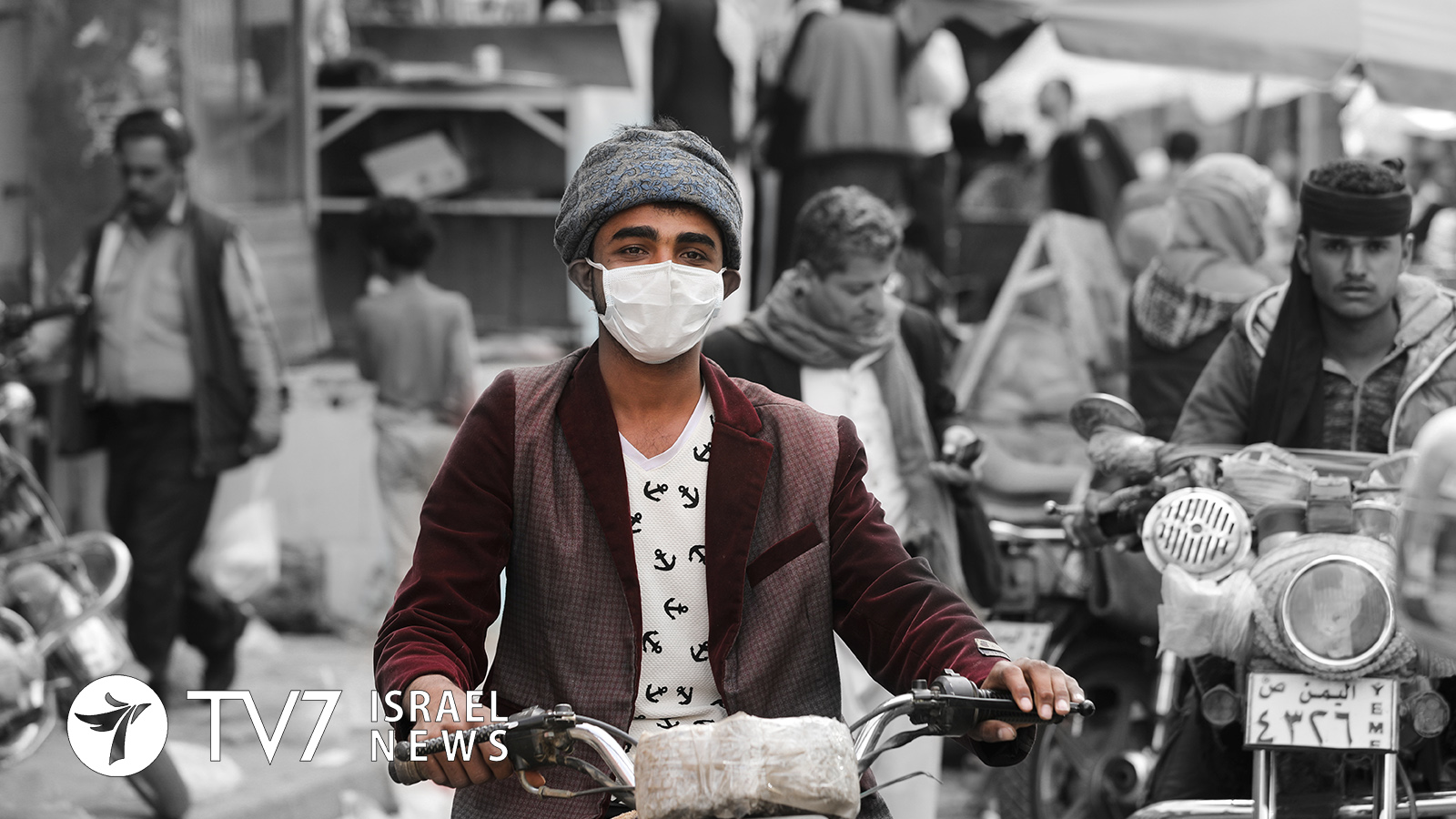Yemen is so far the only Arab country that has not recorded a single case of coronavirus, although preparations are underway in the war-torn Republic if there is an eventual outbreak.
The Arabian Peninsula nation in Western Asia has been mired in conflict since the Houthi group, aligned with Iran, ousted the government from the capital of Sanaa in late 2014. A military coalition led by Iran’s arch enemy Saudi Arabia then intervened to try to restore the government to power, but the Houthis still control most major urban centres. At the time of the last estimate in 2018 there was a population of 28,498,683.
The five-year-old conflict, largely seen in the region as a proxy war between Riyadh and Tehran, has killed more than 100,000 people and unleashed an urgent humanitarian crises that has pushed millions to the brink of famine and forced thousands to seek shelter in displacement camps. Around 80% of Yemenis are reliant on humanitarian aid amid poor sanitation and chronic illnesses such as cholera, dengue and malaria.
Despite a declaration from the World Health Organization (WHO) that Yemen still free from the COVID-19 contagion, both sides of the conflict have stepped up measures to contain the virus should it appear.
“The healthcare system is very weak because of the war,” the Houthi-aligned Coronavirus Task Force Spokesman, Abdelhakim al-Kahlani, told Reuters. He added that the Houthi government is unable to import necessary medical equipment due to the enforced embargo imposed by the Saudi-led alliance.
“It’s been 5 years with the healthcare system deteriorating because of the circumstances and this suffocating blockade,” he maintained, adding that “The health ministry cannot import any medications – just like Iran, which is also blocked off. Those who import are in the private sector, and even they are facing difficulties.”
According to the government spokesperson, organizations that are interested in providing support “are very slow and their procedures are extremely complicated” and “could be prone to some pressures,” saying that “in the end, they make promises but we don’t see anything.”
“We have a big shortage in ventilators, so we are calling on businessmen and pharmaceutical suppliers to help the ministry of health and the [Yemeni] people with buying machines either from abroad or locally, if they are available,” Kahlani said.
WHO is reportedly helping the establishment of a quarantine site at the Kuwait University Hospital in Sana’a, which contains 30 beds, ventilators and oxygen tanks. Testing kits are also said to be scarce, with only enough to test about 50 people.
The World Bank announced the approval of an initial $1.9 billion in emergency funds for coronavirus response operations in 25 developing countries including Yemen, but more than half of the money has already been earmarked to combat the fast-spreading disease in India. WHO said it is also going to redirect resources from existing projects worth up to $1.7 billion, while preparing to spend up to $160 billion over the next 15 months to combat the coronavirus.
Asking the international community for help is currently proving difficult, given the global emergency provoked by the pandemic, said ICU specialist Dr. Rania Abdallah. “The whole world is talking about preparing intensive care units and ventilators in the thousands. Over here, the numbers we’ve gathered don’t even reach the hundreds. If we include all the public and private hospitals, we won’t reach a hundred ventilators,” she said.
“This would be a real catastrophe – we could reach a point where patients come in need of medical attention and we won’t be able to help them,” added Dr. Abdallah.
The Head of the Kuwait University Hospital, Dr. Amin al-Goneid claimed that “93% of hospital machines are out of service or have expired” due to the combined effects of war and the blockade.
Meanwhile, The United Nations and Western allies are pointing to the threat of coronavirus to push Yemen’s combatants to agree to revive negotiations to end the war, diplomats and others familiar with the matter told Reuters yesterday.
A proposal has been sent to the Houthi movement by the world body, said two of the sources, as well as to the internationally-recognized government and the Saudi-led military coalition which supports it.
UN Special Envoy Martin Griffiths is believed to be working to convene the parties via video conference soon to discuss the working document, which reportedly calls for a nationwide ceasefire that would entail the cessation of all air, ground and naval hostilities.
“The Office of the UN Special Envoy for Yemen is engaging the parties on reaching agreements on a nationwide ceasefire… and the urgent resumption of the political process aimed at comprehensively ending the war,” read a statement issued by Griffiths’ office. It also stressed that “This process further aims to foster joint efforts to counter the threat of COVID-19.”
The UN Envoy has been trying to restart broad political negotiations last held in December 2018. Saudi Arabia launched indirect talks with the Houthis late last year which resulted in a temporary lull in the conflict, but a recent surge of violence has threatened fragile peace deals in main Yemeni ports that handle imports and aid flows.
U.S. Secretary of State Mike Pompeo discussed the situation in Yemen during a telephone call with Saudi Foreign Minister Faisal bin Farhan on Wednesday, but the State Department declined to release details of the conversation.
Even though a call for a ceasefire from UN Secretary-General Antonio Guterres was welcomed by all sides just last week, the Houthis fired missiles at Saudi cities, including the capital Riyadh on Sunday. The rockets were intercepted by Saudi air defenses, which retaliated with heavy strikes on Sanaa and the Hodeidah province. The Houthi attack marked the first time Riyadh had been hit since last summer.
Last September the Iran-backed group said it would stop launching missiles and drones at Saudi Arabia in exchange for a cessation of coalition strikes on Yemen, but no official truce was secured and the Houthis have since attacked Saudi border areas.
